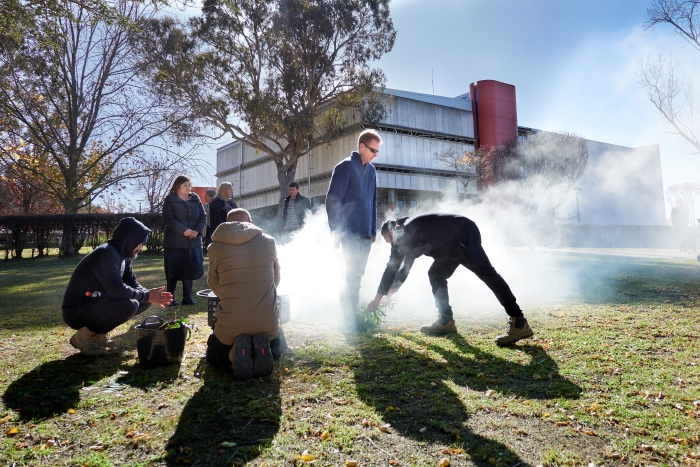We each have our own ideas and approaches to Reconciliation, but our involvement with the University of New England also gives us a collective power to pursue this work in ways beyond the scope of the individual.
Our educational and scholarly mission is at the heart of the contribution that we can make. Education is not in itself a panacea for the ongoing inter-generational damage wrought by colonisation, but it can make a profound difference to the lives and outlooks of individuals.
UNE’s work on what is now called Reconciliation began in the 1950s, shortly after the institution was founded, when women connected the University reached out to local Aboriginal women. That relationship slowly widened into recognition by Aboriginal Elders that education could help individuals better advocate and support their own communities.
The Aborigines Education Foundation was established in 1965. UNE’s Oorala Aboriginal Centre was opened in 1986, and has since evolved a unique approach to supporting Aboriginal people seeking to undertake higher education.
Currently, UNE has 800 Indigenous students, most of whom have been supported through alternative pathways into university study. Last year 98 Indigenous students graduated from UNE, taking UNE’s Indigenous alumni numbers from 1200 to 1300. Those alumni collectively hold 1529 UNE degrees – which suggests that for many Indigenous students, higher education became a journey that persisted well beyond their undergraduate degree.
More importantly for Reconciliation is the belated recognition that Indigenous ways of understanding can transform and enhance non-Indigenous worldviews. Last year, UNE’s environmental sciences degrees introduced the Australian Aboriginal Sustainability Systems course, taught by Gomeroi woman and UNE PhD graduate, Dr Brooke Kennedy. This year, the University brought on four new Indigenous Knowledges lecturers. Through all these teachers, students learn to view their subjects not just as objective observers – as the scientific method asks of them – but from within, as beings with lives dependent on good relations with all of Life.
Ensuring our curricula and research embed Indigenous ways of knowing is a more recent contribution to the process of Reconciliation – and consistent with the character and enduring generational commitments of the University.
With these richer understandings of the world we share, its peoples, places and stories, we can become more effective mediators between Indigenous and non-Indigenous worlds and contribute to the ongoing work of reconciliation.
Sincerely,
Professor Simon Evans
Interim Vice-Chancellor & CEO
UNE


